I used to spend hours researching which phone to buy, reading every review, comparing specs, and still feeling like I wasn’t sure. It wasn’t just phones every decision, from picking a restaurant to choosing a career path, felt like a high-stakes mission. “What if I mess this up?” my brain would whisper, filling my head with worst-case scenarios. The need for certainty was like a constant hum, stealing my peace and leaving me stuck. 😕
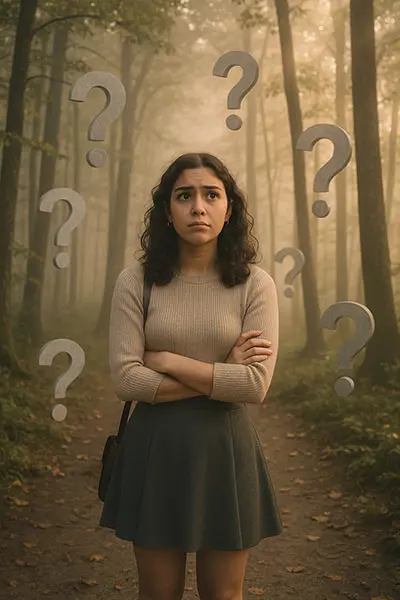
If you’ve ever frozen over a simple choice or spent way too long chasing guarantees, you’re not alone. This obsession with certainty is super common, especially in your 20s and 30s when life’s full of big decisions and unknowns.
Why does our brain crave certainty so much? And how do we stop letting it run our lives? In this article, we’ll dive into why we’re wired to seek certainty, how it fuels anxiety, and practical ways to build tolerance for uncertainty. With real stories, science, and tips you can actually use, we’ll help you find freedom in the unknown.
Ready to let go of needing all the answers? Let’s do this! 😊

Mental Wellness Test
Where Does Your Mind Need the Most Support?
Discover your emotional health in under 4 minutes.
Find out if what you’re feeling is:
burnout, anxiety,trauma
or just too many open tabs in your brain.
No pressure – Just clarity
Why Does My Brain Crave Certainty?
Ever wonder why you can’t just chill when things are unclear? It’s not just you your brain’s wired to crave certainty, and it goes way back. Our ancestors needed to predict dangers, like whether a rustle in the bushes was a predator or just the wind. Certainty meant survival, while uncertainty could mean disaster. Fast-forward to today, and your brain still sees ambiguity as a potential threat, even if it’s just picking a Netflix show.
Evolutionary Roots
From an evolutionary standpoint, certainty equals safety. When you know what’s coming, you can plan and protect yourself. Psychology Today explains that our brains are hardwired to reduce uncertainty to lower stress. When we’re sure, our nervous system calms down, and we feel in control.
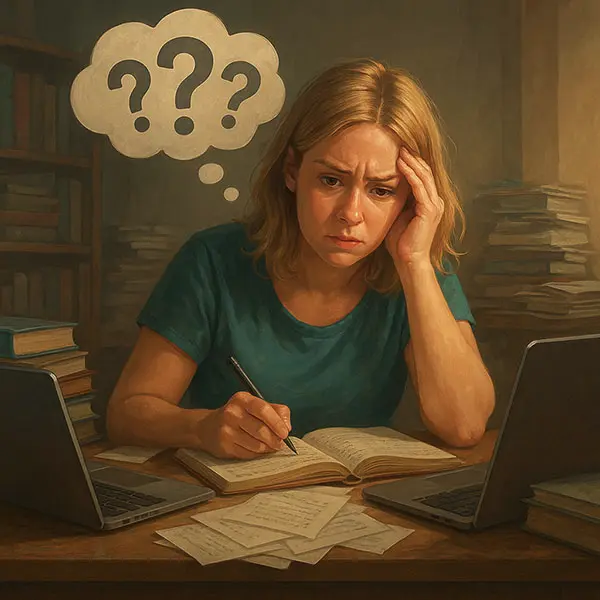
Psychological Need for Control
Certainty feels like control, which reduces anxiety. When you’re unsure, your brain’s amygdala the fear center lights up, signaling danger. This is why you might feel panicked when answers aren’t clear. It’s not about the choice itself; it’s your brain trying to keep you safe.
Perfectionism’s Role
If you’re a perfectionist (like me), uncertainty is your kryptonite. You might think there’s a “right” choice, and anything less is failure. This fear of mistakes amps up the need for certainty, making even small decisions feel like a test. I used to agonize over emails, worried I’d say the wrong thing. Spoiler: there’s no perfect email. 😅
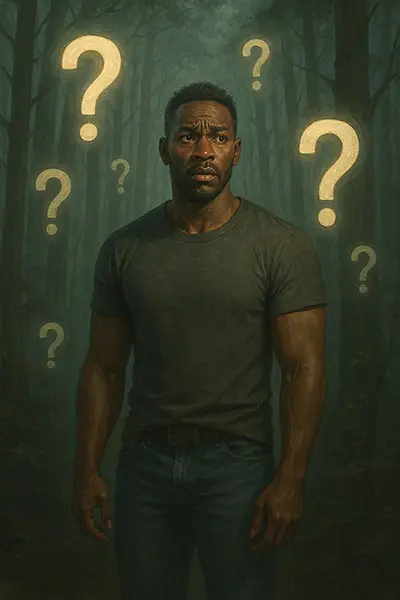
Hypervigilance
Uncertainty can trigger hypervigilance, where your nervous system stays on high alert, scanning for risks. This is especially true if you’ve faced trauma or unpredictable environments. A friend who grew up in a chaotic home said uncertainty still feels like waiting for the other shoe to drop
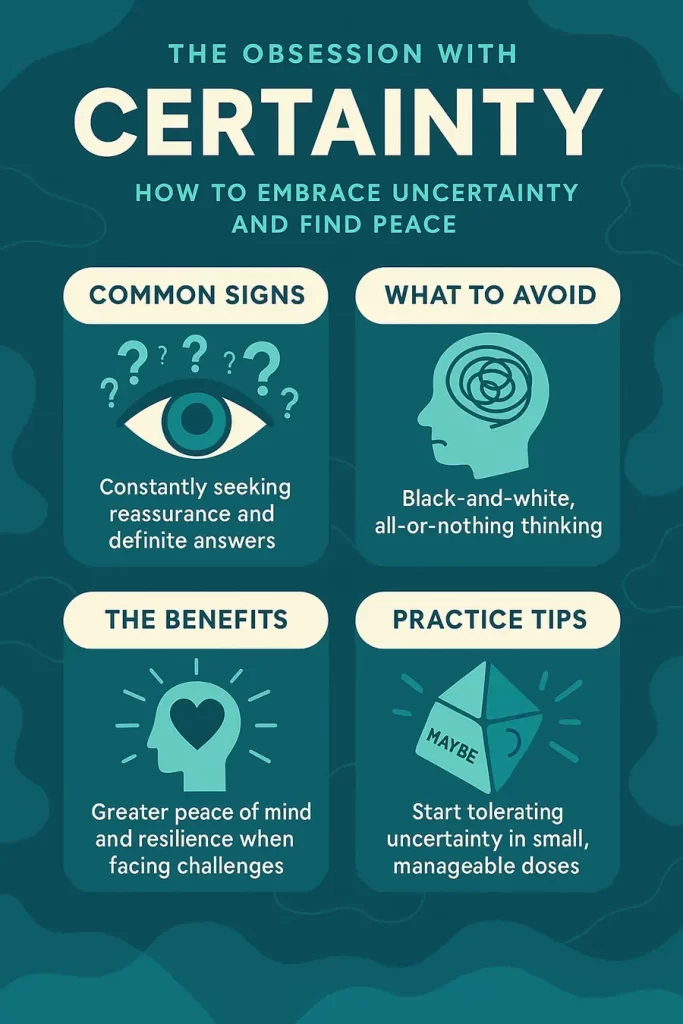
How Obsessive Certainty-Seeking Shows Up
When you’re hooked on certainty, it shows up in ways that can take over your life. Here’s what it looks like:
- Constant Reassurance Seeking: Asking friends, family, or even Google for confirmation before deciding. I’d text my bestie to double-check my outfit choice, like it was a life-or-death call.
- Excessive Research: Spending hours (or days) researching small decisions, like which coffee maker to buy. I once read 50 reviews for a $20 toaster yep, overkill.
- Catastrophizing Outcomes: Imagining the worst-case scenario, like thinking a wrong choice will ruin everything. I’d worry that picking the “wrong” job would tank my career.
- Fear of Wrong Decisions: Avoiding choices altogether to dodge regret. I’d put off decisions, thinking I’d find the “perfect” answer later.
- Struggling to Relax: Feeling restless without full clarity, like you can’t chill until you know everything. I couldn’t enjoy a movie if I was unsure about a work email.
Why do I obsess over uncertainty? Your brain sees it as a threat, so it pushes you to seek certainty to feel safe. But since life’s full of unknowns, this chase becomes a never-ending loop. 😣

Why Chasing Certainty Fuels Anxiety
Life’s messy, unpredictable, and full of unknowns. Chasing certainty in a world that doesn’t offer it is like trying to catch smoke it’s exhausting and impossible. Here’s why this obsession amps up anxiety:
- Inherent Uncertainty: Most things relationships, jobs, health come with no guarantees. Trying to control the uncontrollable keeps your nervous system in fight-or-flight mode.
- Endless Cycle: You might feel brief relief when you think you’ve got certainty, but new doubts always creep in. I’d feel good after picking a restaurant, only to worry if I chose the “best” one.
- Temporary Relief: The calm from certainty is fleeting, leaving you chasing more answers. Healthline says this cycle fuels chronic anxiety.
- Mental Overload: Overanalyzing every choice drains your mental energy, leading to decision fatigue. A 2020 study in Journal of Behavioral Decision Making found that excessive certainty-seeking increases stress by 25%.
I remember spending a whole weekend researching grad schools, only to feel more anxious because I couldn’t be sure which was perfect. The chase for certainty wasn’t helping it was making things worse

Uncertainty and Mental Health Conditions
Uncertainty intolerance isn’t just a quirk it’s a key factor in several mental health conditions, like OCD and ADHD. Let’s break it down:
- OCD and Uncertainty
Is OCD about accepting uncertainty? Yes, big time. Obsessive-Compulsive Disorder (OCD) often involves a desperate need for certainty. People with OCD might perform compulsions like checking or seeking reassurance to reduce doubt. NAMI says intolerance of uncertainty drives many OCD symptoms. Why does OCD want certainty?
Because uncertainty feels like a threat, and compulsions are attempts to neutralize it. Can OCD make you believe things that aren’t true? Yup intrusive thoughts can feel real, even if they’re irrational. What is hyperawareness in OCD? It’s when you’re overly aware of thoughts or sensations, obsessing over them to gain certainty.
- Does OCD get worse with age? It varies some see improvement with treatment, while untreated OCD can worsen. Can untreated OCD lead to schizophrenia? No, they’re distinct disorders, though they can co-occur in rare cases.
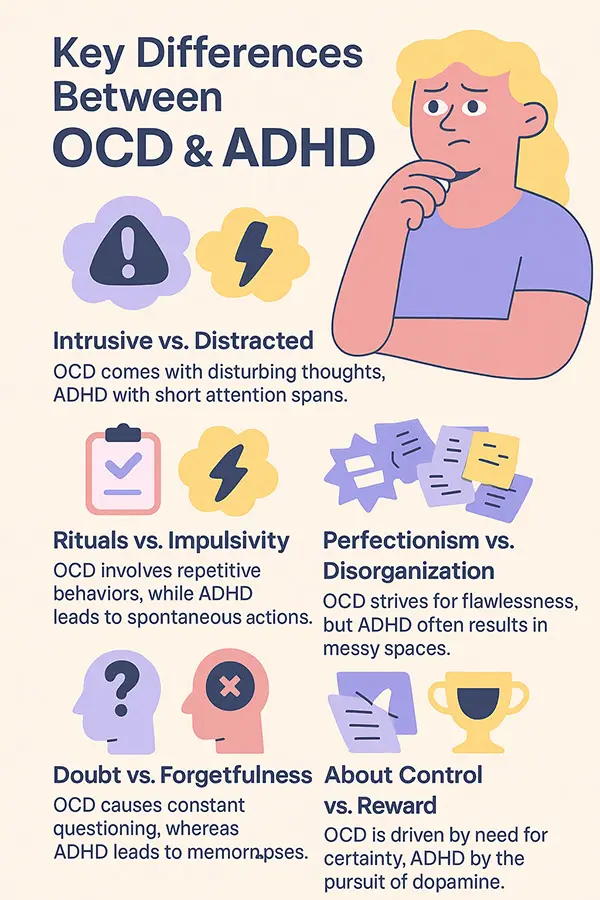
- ADHD and Uncertainty
What is ADHD intolerance of uncertainty? People with ADHD may struggle with uncertainty due to difficulties with planning or anticipating outcomes. This can lead to anxiety or impulsive decisions to avoid ambiguity. What are rare ADHD symptoms? Less common symptoms include hyperfocus, emotional dysregulation, or sensory sensitivities, per ADDitude. These can make uncertainty feel overwhelming. - ROCD (Relationship OCD)
How to accept uncertainty in ROCD? Relationship OCD involves obsessing over relationship doubts, like “Do I really love them?” Accepting uncertainty means tolerating not knowing every answer about your relationship and focusing on your values instead. Exposure and Response Prevention (ERP) therapy is key, per International OCD Foundation.
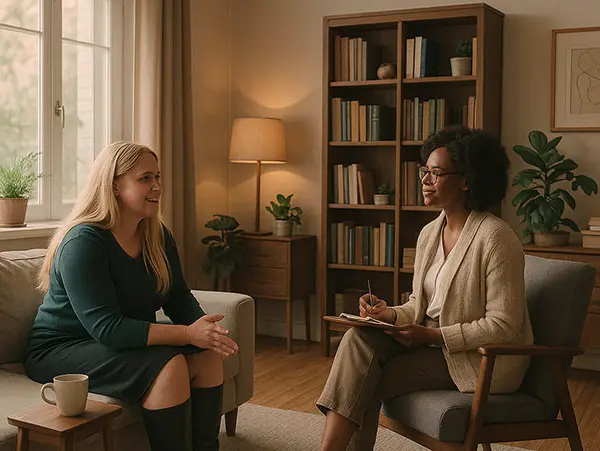
- General Anxiety Disorder (GAD)
What is the disorder of uncertainty? There’s no specific “disorder of uncertainty,” but intolerance of uncertainty is a hallmark of GAD, where worry about unknowns fuels anxiety
Building Tolerance for Uncertainty
How to deal with intolerance of uncertainty? It’s about rewiring your brain to see the unknown as safe, not scary. Here are practical strategies, inspired by Psych Central and my own trial-and-error:
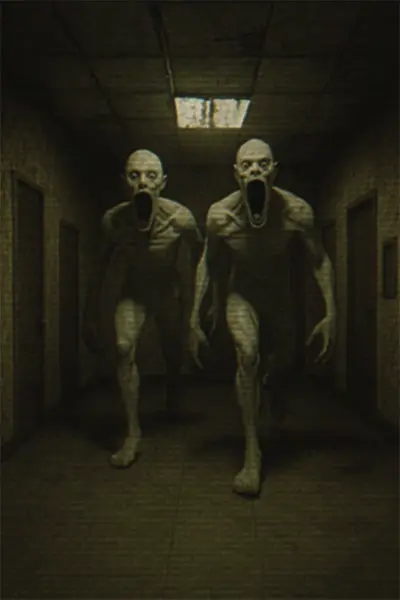
- Acknowledge the Illusion: Say, “Absolute certainty doesn’t exist.” I started whispering this when I’d obsess over choices, and it eased the pressure.
- Reframe Decisions as Experiments: Treat choices like learning opportunities. “I’ll try this and see what happens,” I’d tell myself when picking a weekend plan. It’s less about being “right” and more about growing.
- Contain the Unknowns: Set limits on research or worry time. I give myself 30 minutes to research a purchase, then decide. It cuts the spiral.

- Anchor into Safety: Use grounding techniques like deep breathing (inhale 4, hold 4, exhale 4) or progressive muscle relaxation. I do this when my mind starts catastrophizing. Mantras like “Uncertainty isn’t danger” help too.
- Celebrate Flexibility: Track small wins, like deciding without full clarity. I journaled about choosing a restaurant without reading every review, and it felt like a victory. 😄
- Practice Mindfulness: Stay present to reduce future-focused worry. Apps like Calm have guided sessions that are super chill.
- Limit Overthinking: How to stop pure O? For Pure O (purely obsessional OCD), focus on not engaging in mental compulsions. ERP therapy helps you sit with intrusive thoughts without seeking certainty.
Objection: “These won’t work I need to know!” I get it when you’re anxious, certainty feels like oxygen. But start small. Try one 30-second pause before deciding. It’s not about erasing doubt it’s about living with it. 😊

Real Stories: Learning to Live with the Unknown
Let’s make this real with some stories (names changed for privacy):
- Sarah, 32: “I’d spend hours researching grad schools, terrified of picking the ‘wrong’ one. My therapist taught me to set a research limit and treat choices as experiments. Now I’m less paralyzed.”
- Alex, 25: Alex, who’s non-binary, struggled with uncertainty about coming out. “I was scared of how my family would react. Joining a queer support group helped me accept I couldn’t control their response.”
- Mark, 40: “I’d obsess over my kids’ future, trying to plan every detail. Mindfulness and journaling helped me let go and trust things would work out.”
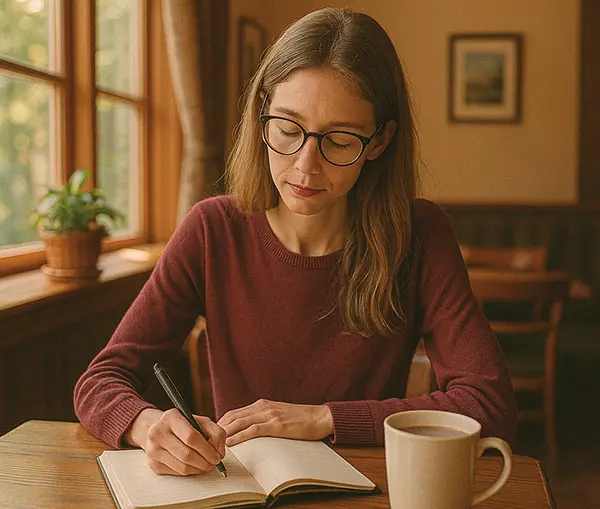
Uncertainty in the LGBTQ+ Community

For folks in the LGBTQ+ community, uncertainty can feel extra heavy due to societal pressures or identity struggles. Decisions like coming out, choosing gender expression, or navigating relationships carry high stakes, amplifying the need for certainty. My friend Alex said they’d freeze over sharing their pronouns at work, worried about rejection.
Joining affirming spaces like queer-friendly therapy or online groups helped them tolerate the unknown and make choices that felt authentic. If you’re part of the community, finding support can make uncertainty feel less like a threat and more like a part of your journey. 😊
When to Seek Help
If your need for certainty is paralyzing your life work, relationships, or daily tasks it’s time to talk to a pro. Signs include:
- Constant panic over decisions.
- Avoiding choices altogether.
- Physical symptoms like chest tightness or insomnia.
- Obsessive thoughts that won’t stop.
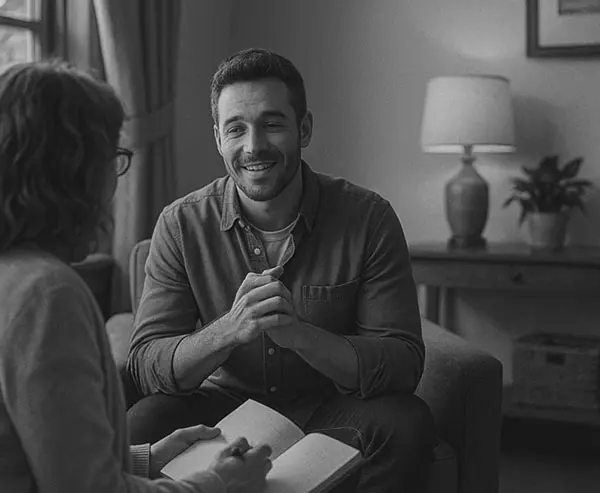
A therapist can help, especially for conditions like OCD or GAD. NAMI recommends CBT or Acceptance and Commitment Therapy (ACT) for uncertainty intolerance. I saw a therapist when I couldn’t stop researching job options, and it helped me see my fear was about control, not failure. Reaching out’s a win, not a loss
Conclusion
The obsession with certainty can feel like a trap, keeping you stuck in a cycle of anxiety and doubt. But life’s full of unknowns, and chasing guarantees is a losing game. By understanding why your brain craves certainty and practicing tolerance for uncertainty, you can find peace in the messiness of life. Start small make one choice without overthinking, take a deep breath, and trust yourself. You don’t need all the answers to live fully. Your strength lies in flexibility, not perfection.

Struggling with uncertainty? Try one tip from this article like setting a decision time limit and share your story in the comments. Let’s embrace the unknown together! 😊
How to Start Embracing Uncertainty
Time needed: 30 minutes
How to Start Embracing Uncertainty
- Acknowledge Your Anxiety:
Notice when you’re seeking certainty and name it: “I’m feeling anxious about the unknown.”
- Set Decision Limits
Give yourself 30 minutes to research or worry, then decide.
- Reframe Choices
Treat decisions as experiments, not final verdicts.
- Practice Grounding
Use deep breathing or mindfulness to calm your nervous system.
- Celebrate Small Wins
Journal times you chose without certainty and how it turned out.
- Limit Triggers
Avoid overstimulating environments like social media when anxious.
Citations
- Psychology Today: Explains how intolerance of uncertainty fuels anxiety and why fixating on certainty worsens symptoms
- Psychology Today: Offers actionable ways to tolerate uncertainty and reduce emotional distress
- NAMI: Overview of anxiety disorders, impacts, and support options
- International OCD Foundation (IOCDF): Specialized insights on Relationship OCD (ROCD) beliefs, symptoms, and emotional effects
- ADDitude: Lists ADHD symptoms in adults: inattention, impulsivity, hyperactivity
- PMC (PubMed Central): Research on how uncertainty disrupts decision-making and heightens anxiety
Dont miss the related articles
- Why Can’t I Turn My Brain Off? Dealing with Overthinking at Night
- The Guilt That Comes With Saying No
- Setting Digital Boundaries Without Feeling Like a Jerk
- What Is Emotional Self-Care and Why You Probably Need It

FAQ
Your brain sees uncertainty as a threat, triggering anxiety to protect you. Past trauma, perfectionism, or mental health conditions like OCD can amplify this response.
Yes, OCD often involves seeking certainty through compulsions. Treatment focuses on tolerating uncertainty to reduce obsessive behaviors and promote long-term relief.
Use a combination of CBT, ERP, and mindfulness. Build daily tolerance by limiting overthinking, practicing emotional exposure, and embracing “not knowing” as part of life.
Yes. Intrusive thoughts in OCD can feel intensely real, even if they’re irrational. OCD tricks your mind into seeking certainty, but therapy helps you spot the illusion.
It’s an obsessive focus on internal thoughts, sensations, or bodily functions. People with hyperawareness OCD struggle to “turn off” their attention to these sensations, fearing they’re missing something important.
Ultimate Mental Wellness Test: Discover Emotional Health Just in 3 Min
Ever wonder where you stand with your mental health? That’s where our quick question Mini Mental Health Check comes in. It’s like a quick peek into your brain, giving you insights into your anxiety, burnout, and self-esteem levels.
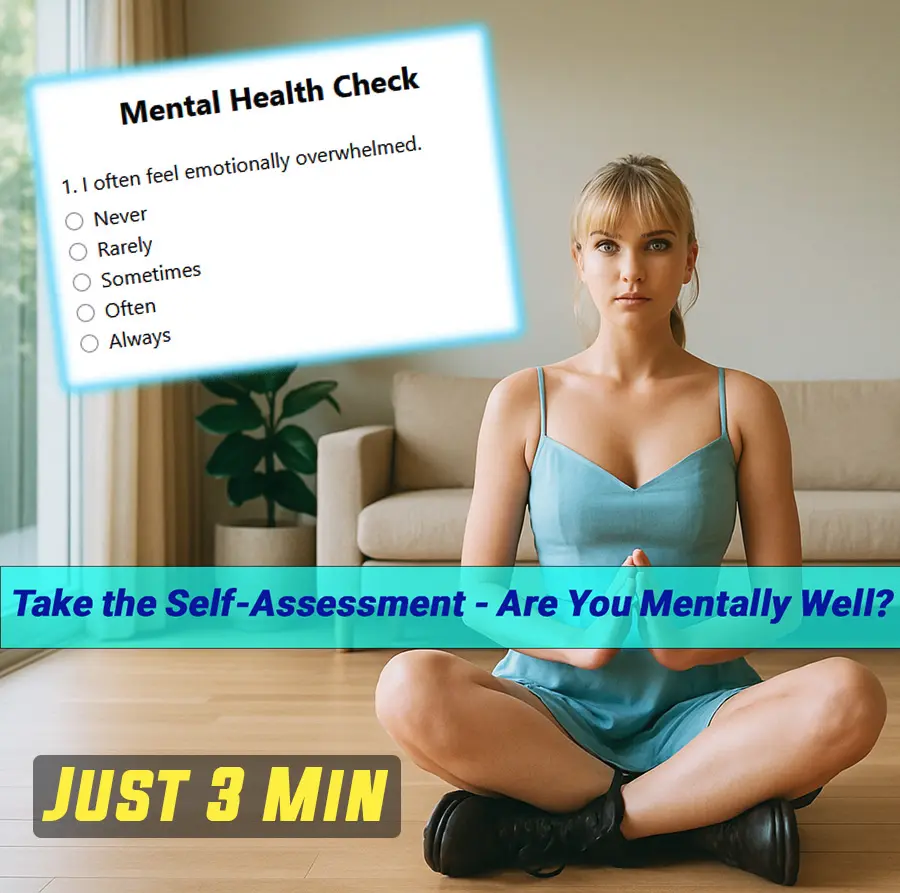
✨ Last updated on 08.08.2025
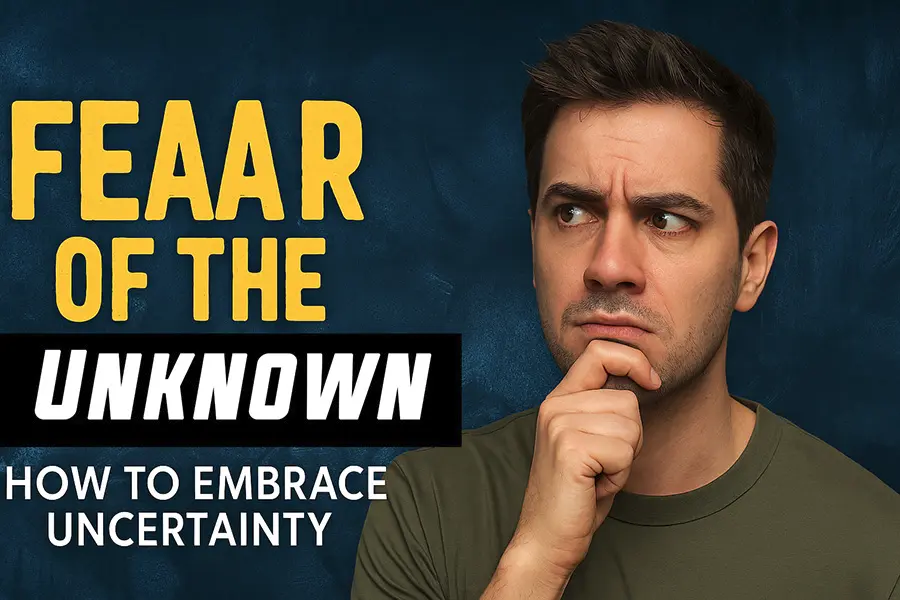
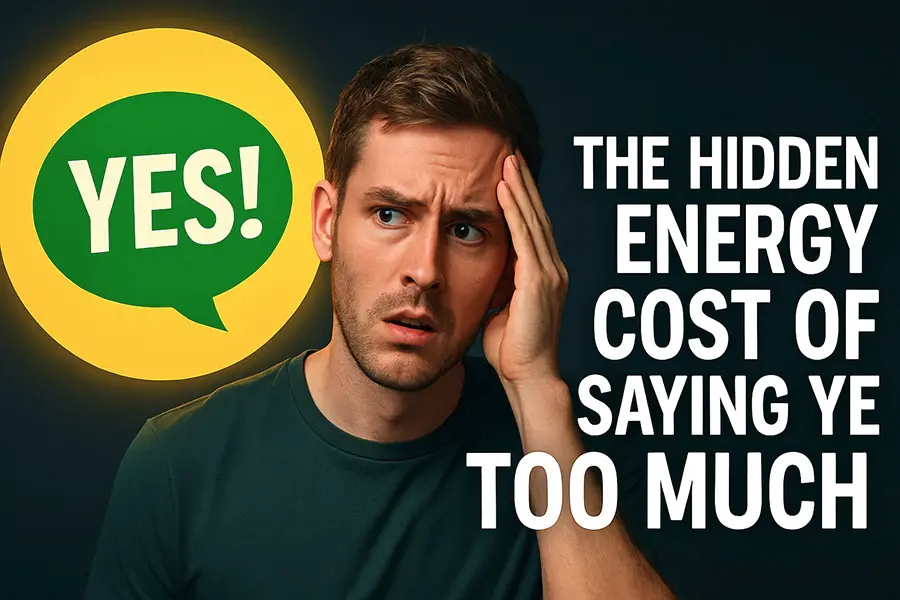
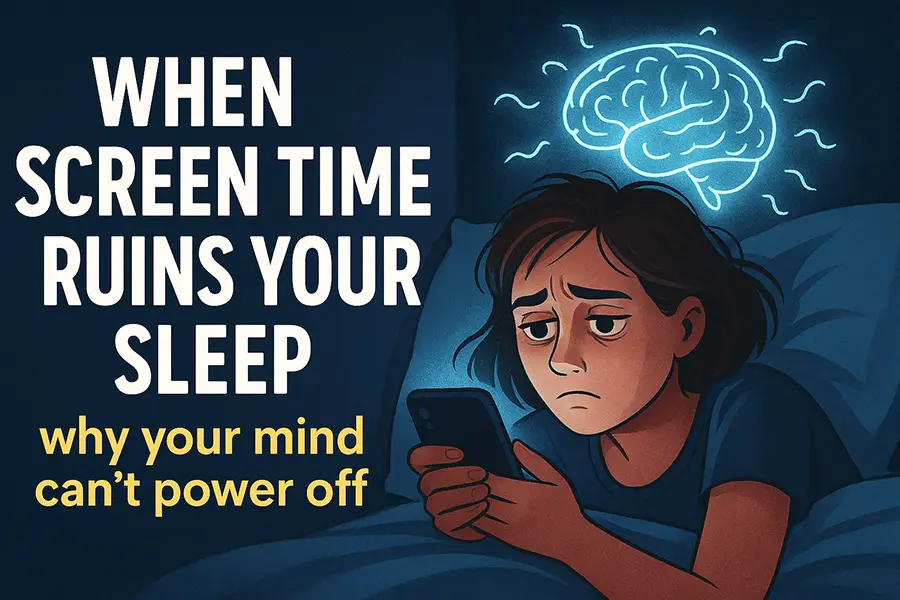
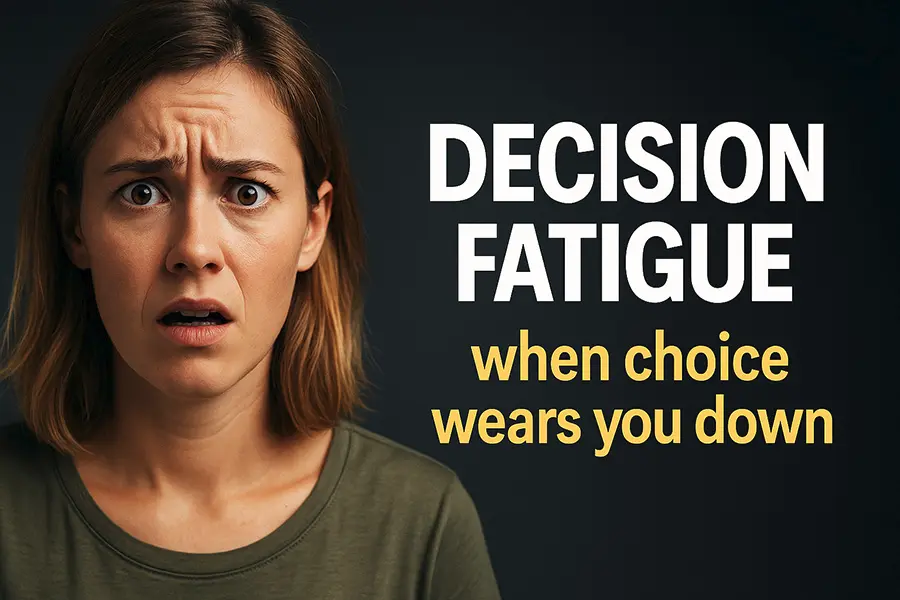
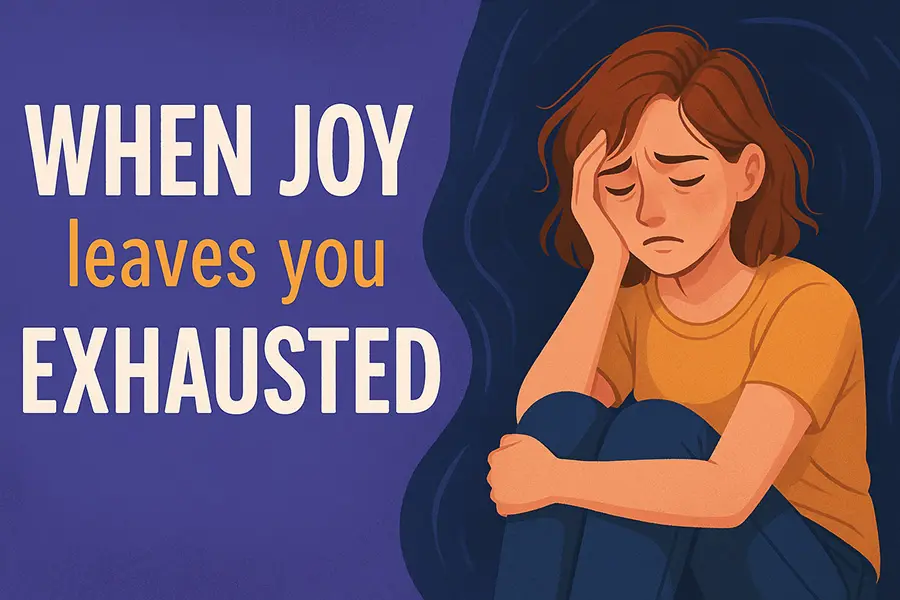
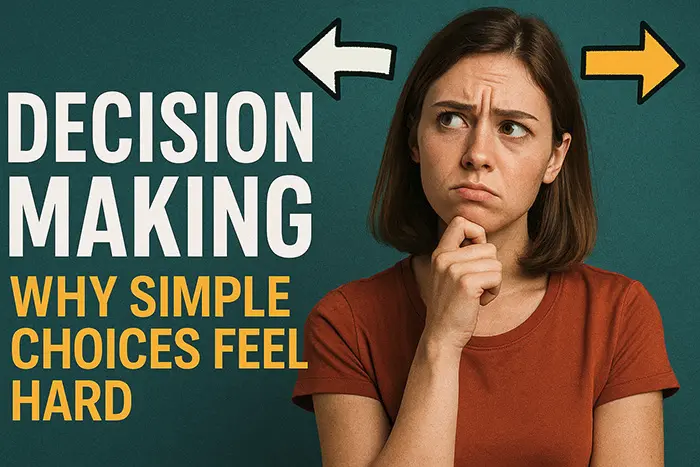
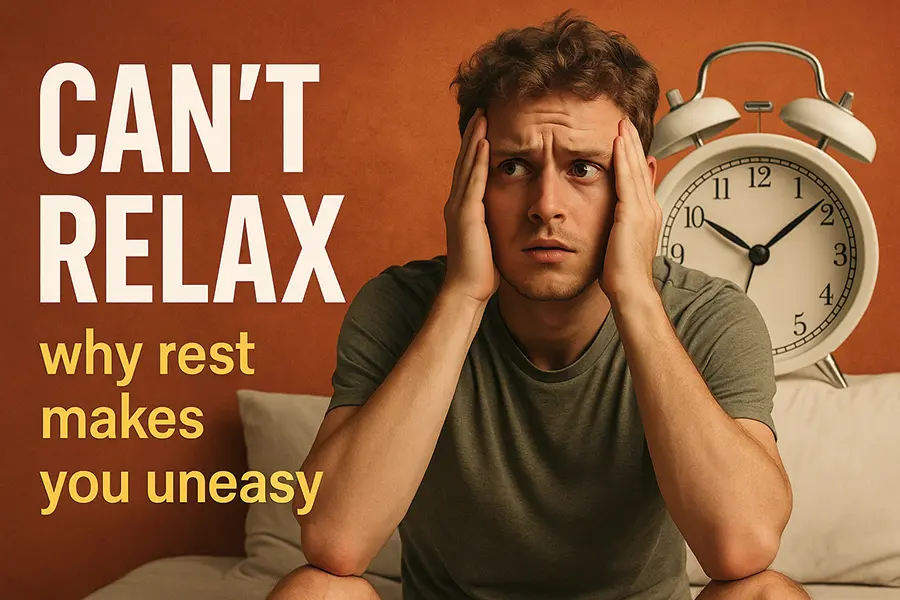
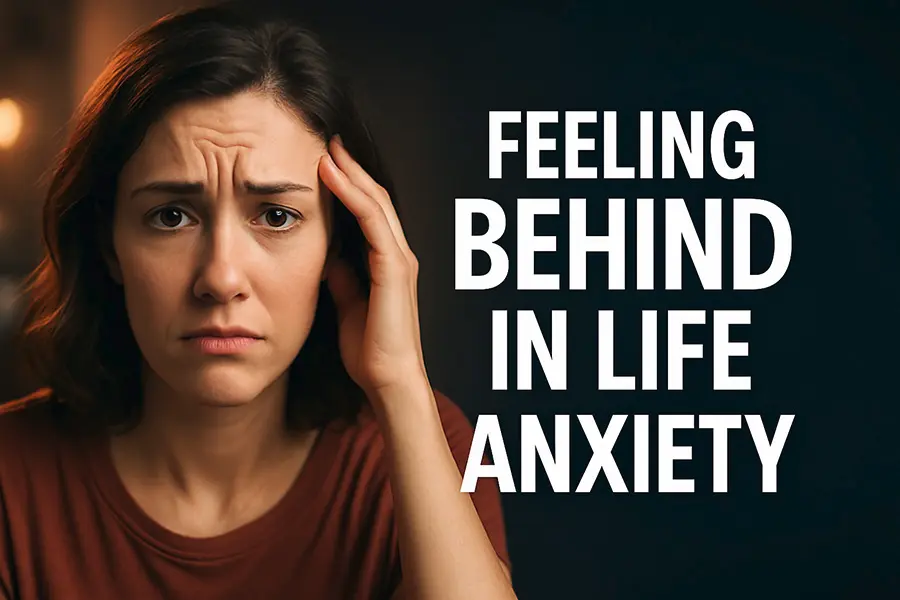
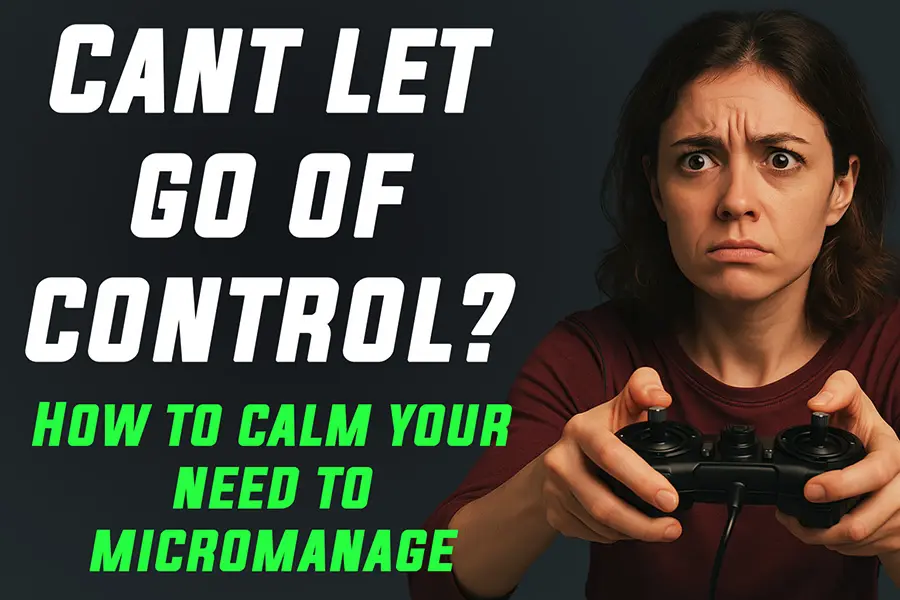
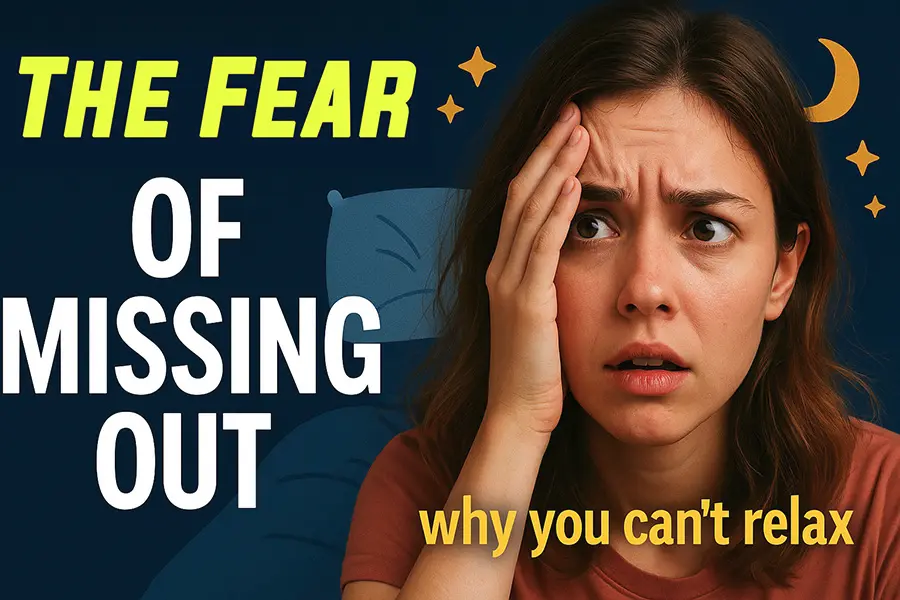
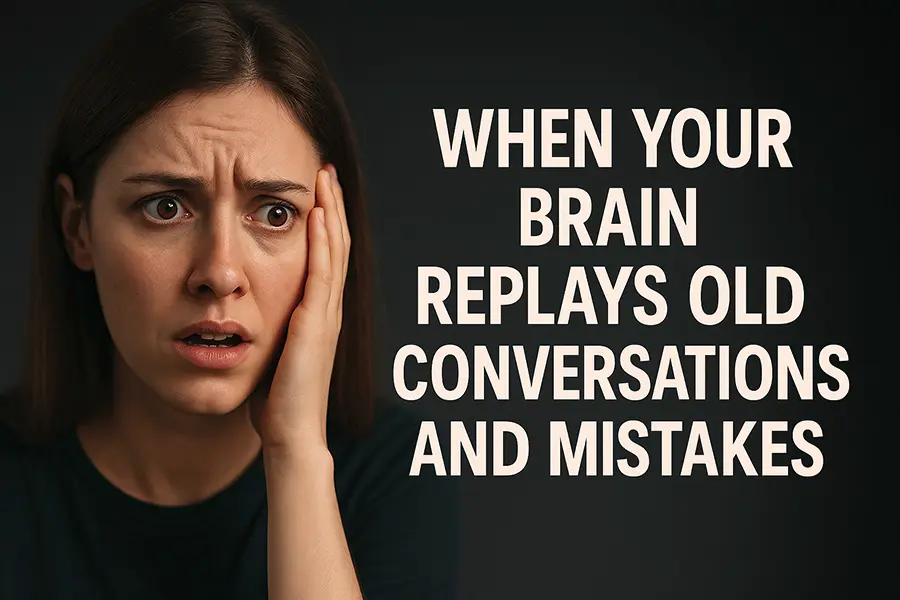
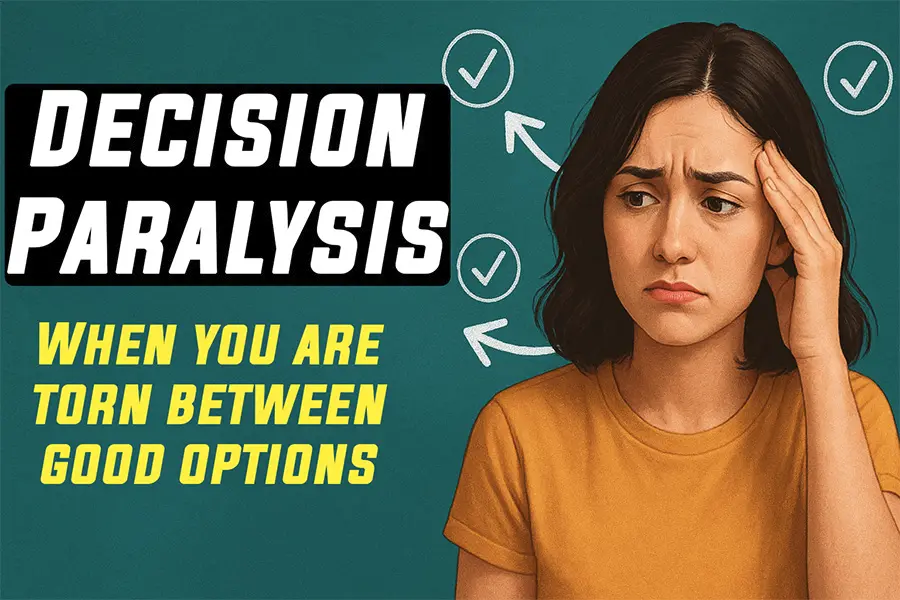










Leave a Reply